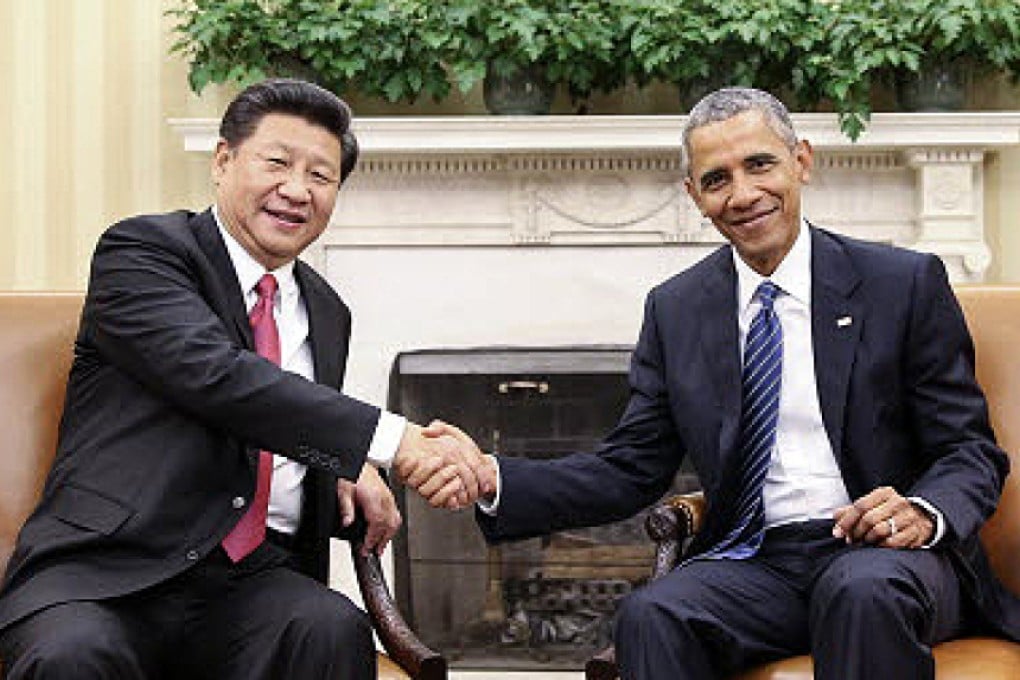The leaders of China and the US must put their pledges into practice
Gauging the success of President Xi Jinping's first state visit to the US cannot be done simply by counting the number of agreements signed or business deals struck.

Gauging the success of President Xi Jinping's first state visit to the US cannot be done simply by counting the number of agreements signed or business deals struck. Nor can it be determined by the rhetoric and body language in speeches or the importance of those present at dinners and meetings. What has been accomplished will be determined over time through cooperation. The world's two most powerful nations need confidence and trust to work together and the foundations have at least been put in place.
Xi and his counterpart, Barack Obama, said and did the right things during their meetings. They reached a "common understanding" on combating cyberspying, unveiled a deal to build on efforts to tackle pollutants that are behind climate change and finalised a plan for a code of conduct to prevent the risk of collisions between military aircraft. Business pacts were earlier signed with Boeing and Cisco Systems; a week before Xi's trip, it was announced there would be Chinese involvement in a high-speed rail link between Los Angeles and Las Vegas. Ties would seem to be firmly on track.
The reality is that there is major competition and distrust on both sides. As significant as the pact on cyberespionage is, with the leaders agreeing that neither government would knowingly support theft of corporate secrets or business information, Obama threatened to impose sanctions should Chinese hackers be confirmed as being behind attacks. Xi gave assurances of cooperation, but the American president was less positive, asking whether words would be matched by deeds. Relations cannot be smooth if there is continued scepticism, a lack of belief, and confrontation and friction.
The people of China and the US and the world want the Sino-American relationship to be on a sound footing. But for that to happen, both sides have to be dedicated to making agreements work. China certainly is; Xi made clear his optimism about the future and what could be achieved. But there are doubts about the US commitment - the Chinese "check list" of achievements numbered 49, while that issued by the White House was comparatively modest.
China and the US have promised to manage and control "divergences and sensitive issues in a constructive way". In their dinner toasts, Xi and Obama focused on friendship. This is what we need to hear. But the benefits will come only when the pledges are put faithfully into practice.
